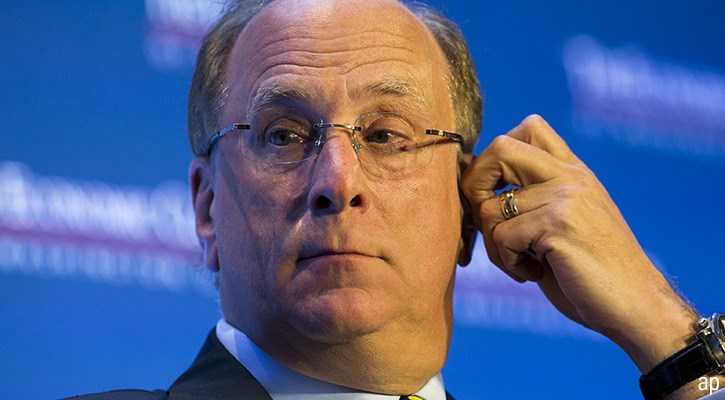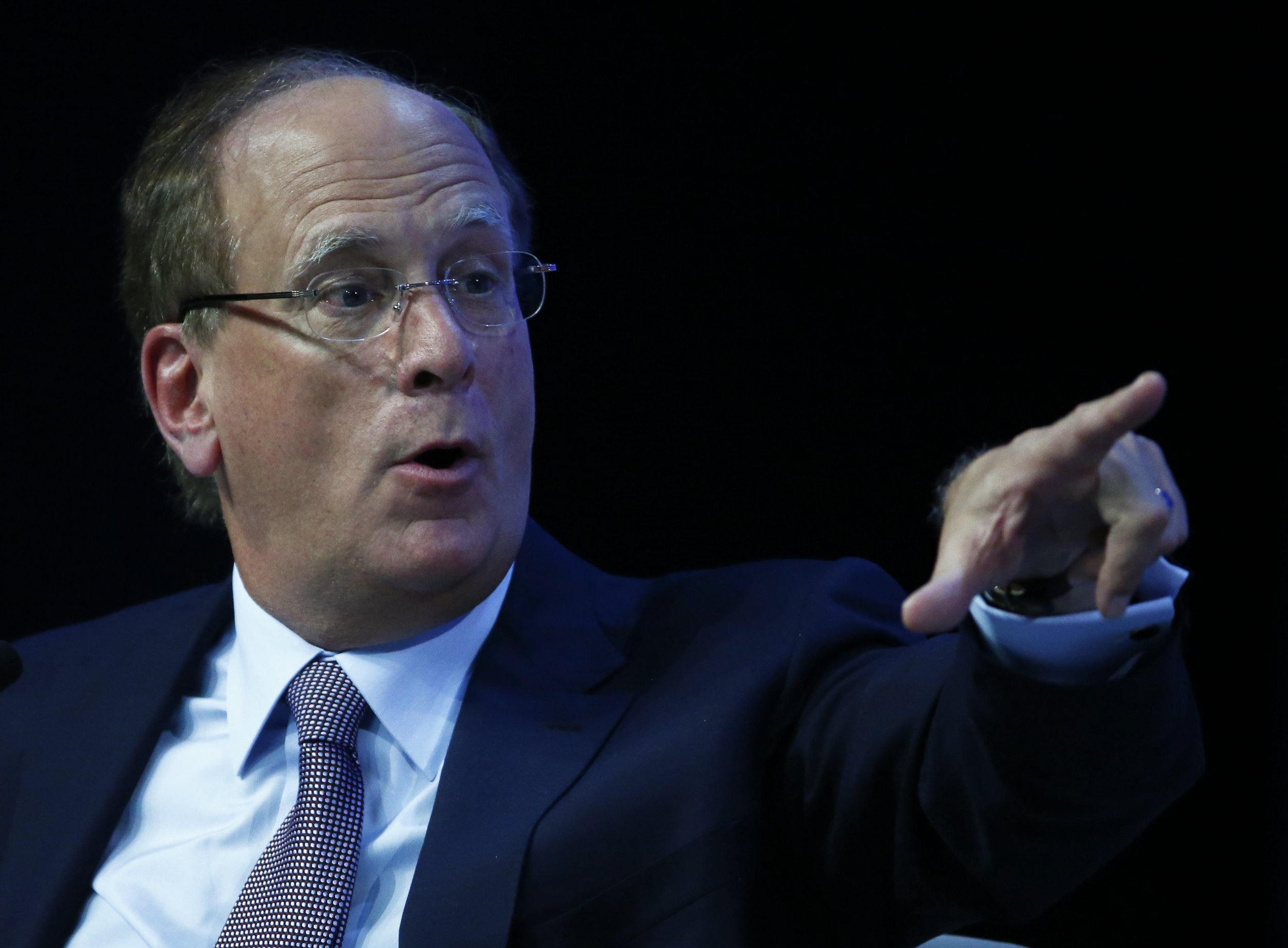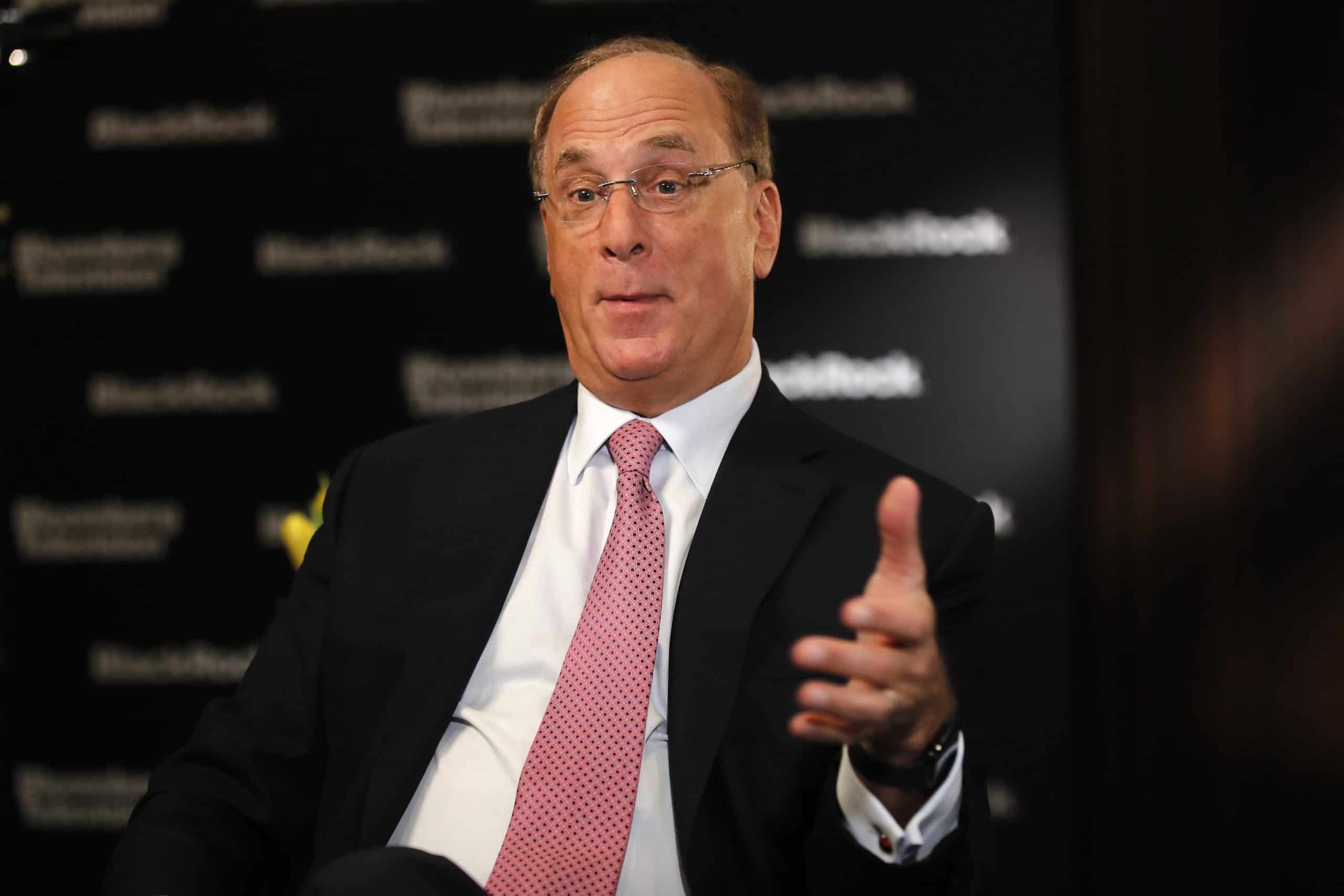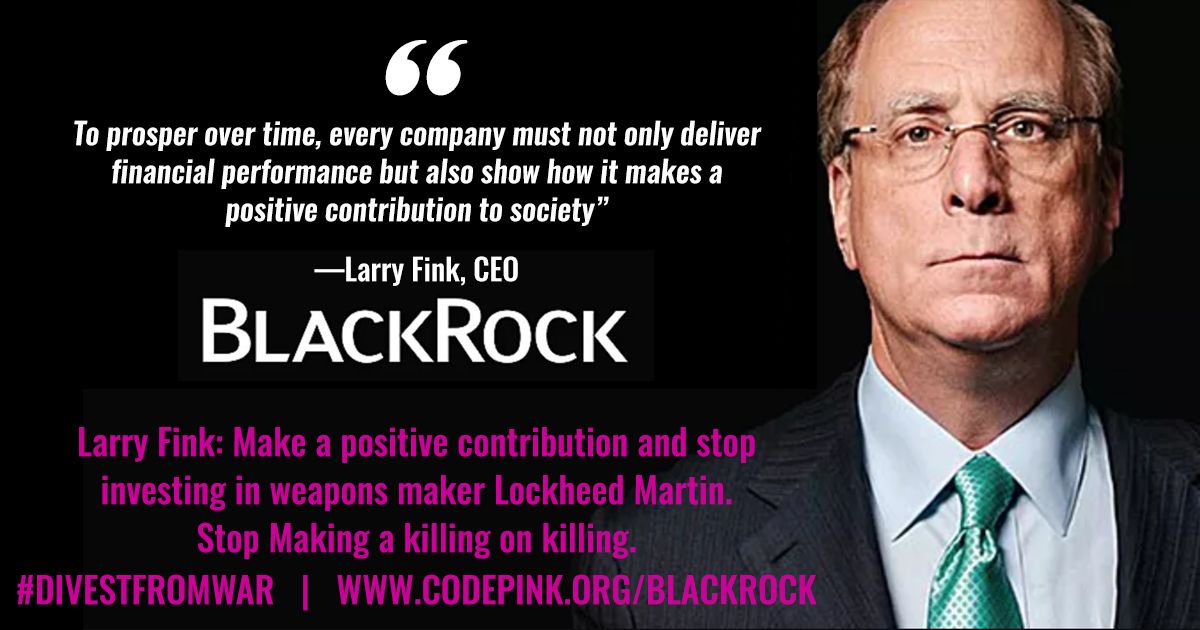
#BLACKROCK CEO LARRY FINK CODE#
You’ve talked in the past about fiddling with the tax code to nudge people toward longer-term thinking. We are trying to maximize returns for our clients over a long cycle. But we have the same fiduciary responsibilities everybody else does. We’re also, I hope, changing the dialogue and changing behavior. We’re looking to offer a different opinion. But over the long cycle, that’s devastating for the company and, if it’s American, probably for the United States as well.ĭo you think you have clout in this debate, given the assets that BlackRock controls? A company can stop R&D and show fabulous short-term results. Often we see companies greatly reduce their capital expenditures and R&D as a result of this short-term focus. But sometimes the end result is a crippled company that has been divested of its best components or has stopped innovating.

Well, activists can create benefits in the short run. Is it investing the way it said it would? Is it repaying capital to shareholders? What we’re seeing now is that companies often pivot because of the needs of their short-term investors. If a company gives us a five-year or a 10-year business plan, we can measure throughout the period to see if it’s living up to the plan. At BlackRock we want companies to be more transparent about their long-term strategies so that we can measure them over a long cycle. I wanted to tell them and their boards that there is another voice. So what was the purpose of your letter to the CEOs?

And there, if we don’t like the companies’ short-term or long-term strategies, we sell the stock. Unfortunately, that’s built in to an index-you own great companies and lousy companies. That means we have to focus on long-term strategy.īut if you’re index-based, you’re investing in a lot of companies that don’t share these values. With those holdings, we own companies for as long as they’re on the index. Of the $4.8 trillion we manage, $2.7 trillion is in the form of index-based assets.

Isn’t BlackRock itself contributing to the short-term investment environment? Society is faced with the immediacy of information, and we’re having a hard time dealing with it. Think about how frequently we look at our phones now for e-mail. But the phenomenon is deeply embedded in society.
#BLACKROCK CEO LARRY FINK DRIVER#
I assume that the primary driver of short-termism is the metrics we use to measure performance. And it’s hard for CEOs to focus on the long-term needs of their companies, given the short-term demands of many shareholders. In this environment, it’s hard to talk about long-term concepts, such as retirement. Very few people are talking about the long term. The media’s whole business model is predicated on short-termism: What’s happening in Moscow today, or Beijing, or Brooklyn? Why did the market move 0.2%? Banks are the same way: Their business is all about the velocity of money. In this edited interview with HBR’s editor in chief, Adi Ignatius, Fink talks about what motivates his crusade against short-term thinking and what it might take to change the system.įink: I’m trying to change the narrative.

A lifelong Democrat, he created waves in April 2015 when he sent a letter to the world’s leading CEOs urging them to ignore their activist shareholders and focus instead on the long-term health of their companies. But what truly sets Fink apart is his desire to change the very financial system that made him who he is.įink speaks out forcefully and often about the perils of short-term thinking, especially on Wall Street-a topic that has already found traction in the early days of the 2016 U.S. And he’s on HBR’s 2015 list of the world’s top-performing CEOs. The 63-year-old former securities trader cofounded and still runs the world’s biggest money-management firm, BlackRock, which controls assets approaching $5 trillion. Larry Fink is one of the most powerful players in global finance.


 0 kommentar(er)
0 kommentar(er)
